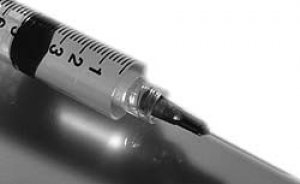
All iLive content is medically reviewed or fact checked to ensure as much factual accuracy as possible.
We have strict sourcing guidelines and only link to reputable media sites, academic research institutions and, whenever possible, medically peer reviewed studies. Note that the numbers in parentheses ([1], [2], etc.) are clickable links to these studies.
If you feel that any of our content is inaccurate, out-of-date, or otherwise questionable, please select it and press Ctrl + Enter.
Scientists have developed a vaccine for heroin addiction
Medical expert of the article
Last reviewed: 30.06.2025
 ">
">In order to teach the immune system to react not only to heroin, but also to its derivatives, scientists have developed a "dynamic vaccine" that undergoes the same transformations in the body as real heroin, and gradually teaches the immune system to recognize the products of heroin metabolism.
Among the approaches proposed by scientists to combat heroin addiction is the idea of an anti-heroin serum, which involves the body's immune system attacking the dangerous substance.
But the difficulty is that heroin quickly turns into 6-acetylmorphine and morphine in the body, which easily pass through the blood-brain barrier and reach the opiate receptors in the brain. Therefore, the immune system must simultaneously catch not one pest, but several at once.
Researchers from the Scripps Institute (USA) have found a way to teach the immune system to recognize several heroin derivatives at once. First, the scientists synthesized a heroin-like hapten molecule. This is a "dummy" molecule that can be used to "train" the immune system to a real enemy. But it is too small to be recognized by the immune system, so it needs a large macromolecule to "present" it. In this case, the researchers attached hemocyanin from the sea mollusk fissurella to the hapten "dummy", with the help of which the immune system was able to create specific antibodies.
The trick was that the heroin-imitating substance slowly underwent the same changes in the body as real heroin, meaning it gradually exposed the immune system to all the morphine derivatives of heroin. And the attached protein didn't interfere with this. The researchers called it a "dynamic heroin vaccine" and injected it into rats to test its effectiveness.
In response to the introduction of the "dynamic vaccine," the animals' bodies began to synthesize antibodies against the entire set of heroin derivatives. Moreover, the vaccine was able to suppress the rats' craving for heroin: only three out of seven animals continued to press the lever to get the desired drug. At the same time, a vaccine created only against morphine and not providing for a change in the target substance did not reduce the animals' craving for heroin.
The dynamic vaccine worked only with heroin derivatives and did not affect sensitivity to other substances that also interact with opioid receptors and are used in the rehabilitation of drug addicts (such as naloxone or methadone). Thus, the researchers conclude, the vaccine they created can be used together with other types of anti-drug therapy.


 [
[